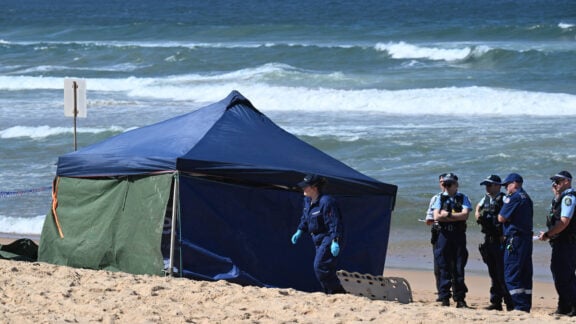In the early hours of April 21, 1967, Greece woke to the sound of marching boots and martial music on the radio. Tanks rolled through Athens, military forces occupied strategic points, and political leaders were arrested in what would become one of the darkest chapters in modern Greek history — the beginning of a brutal seven-year dictatorship imposed by a military junta.
The coup was orchestrated by a group of mid-ranking officers: Brigadier General Stylianos Pattakos and Colonels Georgios Papadopoulos and Nikolaos Makarezos. Exploiting the political fragility of the time, they moved swiftly and decisively, pre-empting a separate planned coup by senior generals and taking control of the country with astonishing ease.
A country on the brink
Greece in 1967 was heading into elections scheduled for May 28, with the interim government led by Panagiotis Kanellopoulos of the National Radical Union (ERE), supported by the opposition Centre Union leader Georgios Papandreou and King Constantine II. Widespread belief held that Papandreou’s party would win by a landslide, potentially ending the political instability that had followed the controversial resignation of Papandreou in 1965 — a period known as the “Apostasy.”
But within right-wing circles, fears of “anarcho-communism” loomed large. For the post-civil war conservative establishment, even moderate centrists — and especially the rising star Andreas Papandreou — were seen as dangerous leftist elements. Despite the Communist Party being banned, the left-wing EDA was still polling at 11.8% in the 1964 elections, creating enough paranoia among the establishment to justify drastic action.
The political climate was saturated with Cold War anxieties. The Greek military was powerful, interventionist, and closely aligned with NATO interests. The monarchy was still a significant political force, and the far-right was emboldened by past political assassinations, such as that of Grigoris Lambrakis. The United States wielded substantial influence, treating Greece as a strategic outpost in its geopolitical chessboard.

The night Democracy died
The conspirators launched their coup from the Armored Training Centre in what is now the Athens Polytechnic campus. Tanks moved out at 2:00 a.m. and seized key government sites including Parliament, ministries, the national broadcaster EIR, the telecommunications authority OTE, and the royal palace.
Simultaneously, Colonel Ioannis Ladas mobilized loyal military units to arrest senior government and military figures. The coup plotters activated NATO’s anti-communist contingency plan, “Prometheus,” under the pretense of preventing a leftist uprising — though no such threat was imminent.
Crucial support came from Colonel Dimitrios Ioannidis, commander of the military academy and the notorious Military Police (ESA), who ensured widespread compliance within the armed forces.
One of the junta’s first moves was to arrest the Chief of Army Staff, Lieutenant General Spandidakis, and replace him with Odysseas Angelis, an officer already aligned with the coup. Angelis ordered military units nationwide to execute the Prometheus plan, ensuring control across the country.
A silenced Dawn
By 3.30am, the coup had succeeded without a single shot fired. Greeks awoke to the blare of martial music and folk songs on state radio. The first decree outlawed public gatherings of more than three people. By afternoon, constitutional protections were suspended and the upcoming elections were cancelled.
Even U.S. officials were caught off guard. American ambassador Philip Talbot was informed of the coup by the nephew of the deposed Prime Minister. When Talbot later called it a “rape of Greek democracy,” CIA station chief Jack Maury reportedly replied coldly: “How can you rape a whore?”
Only two morning newspapers reported the coup: Kathimerini noted the arrests of political figures, and Avgi mentioned the detention of Manolis Glezos, Leonidas Kyrkos, and Andreas Papandreou, along with unusual military activity.
Seven years in the shadows
Thus began the dictatorship of the Colonels, which lasted for seven years, three months, and three days. Under Papadopoulos and his co-conspirators, Greece entered a period of mass censorship, political imprisonment, torture, and cultural repression. Opposition figures were exiled, universities silenced, and basic freedoms stripped away
The regime fell on July 23, 1974, following the disastrous coup in Cyprus engineered by the junta, which triggered a Turkish invasion and led to national trauma and geopolitical fallout that resonates to this day.
The military junta of 1967 is now remembered as one of the darkest stains on modern Greece’s democratic journey — a stark reminder of how fragile democracy can be when fear, foreign interference, and unchecked power converge.
Sources: Neos Kosmos Archive, Sansimera.gr, Greek archival records







